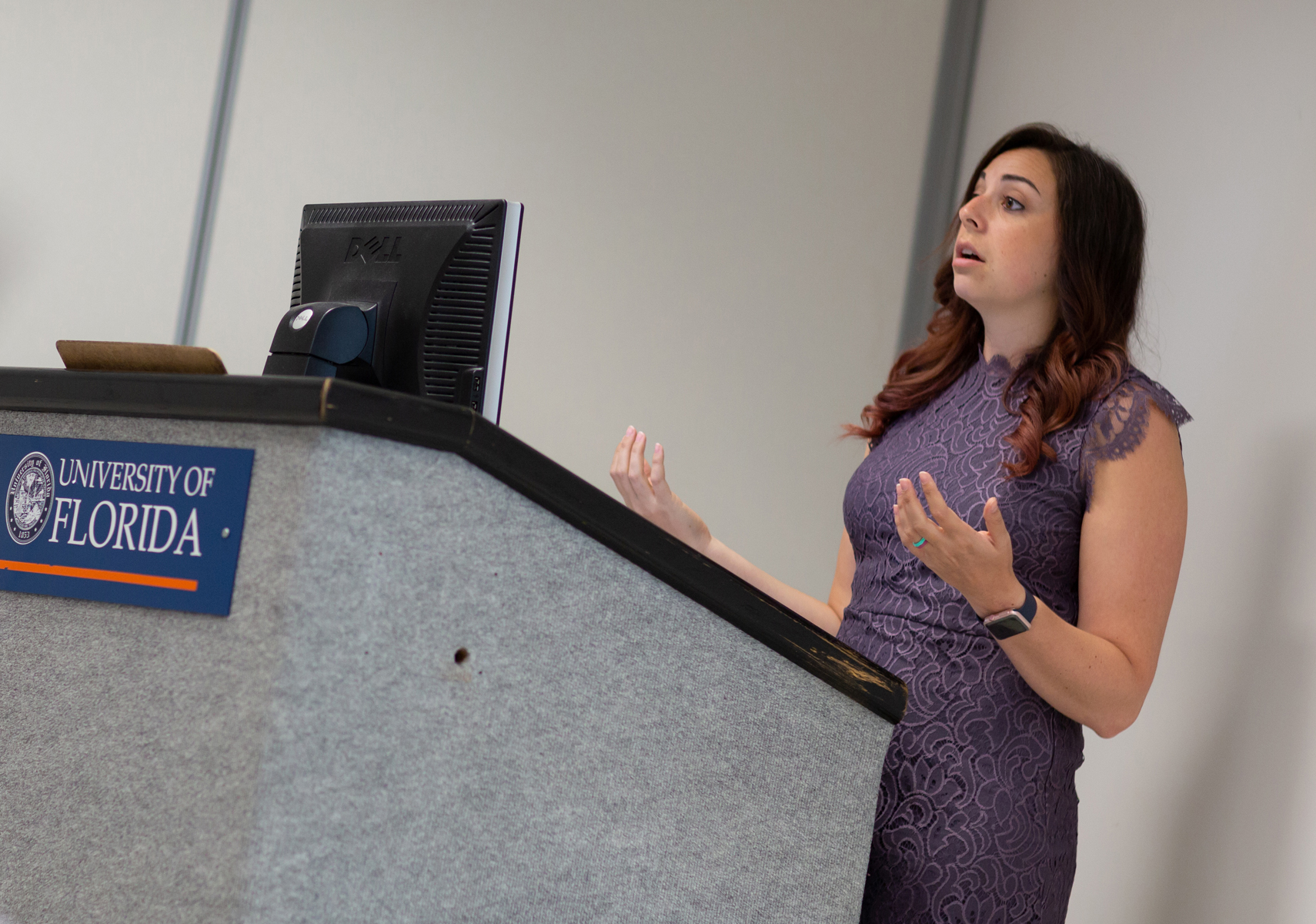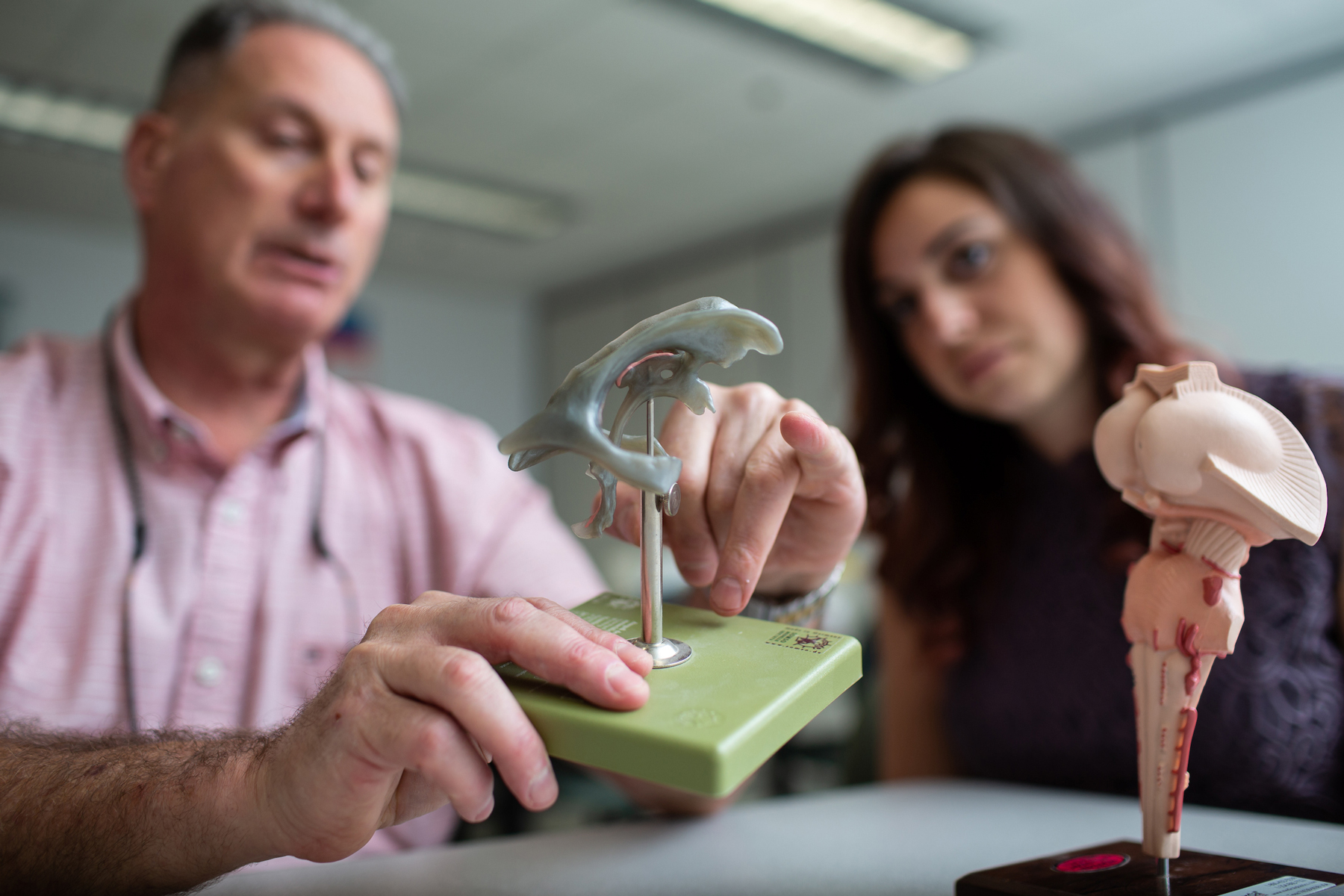
By Michael Pace
For neuroscience trainees, long days in the lab and late nights writing research papers are the norm and exploring outside educational interests can prove difficult.
A new program launched by the Evelyn F. and William L. McKnight Brain Institute of the University of Florida, or MBI, is designed to open doors for these students, making it easier for trainees to gain experience beyond their traditional roles.
“I feel fairly confident that I want to teach as a profession but having never done a full course load, that’s an impossible decision to make,” said Abbi Hernandez, Ph.D., a postdoctoral neuroscience researcher.
Hernandez was among the first of three recipients of the MBI’s Trainee Enhancement Opportunities program, or TEO, the first cycle of which began in the spring 2018 semester. The TEO is designed to support training opportunities by funding a semester-long experience outside a trainee’s normal program, allowing them to take time away from their normal duties.
“It’s crafted from my interactions with graduate students — listening to where they see themselves going and seeing the gaps that currently exist in their training,” said Jada Lewis, Ph.D., a professor in the UF College of Medicine’s department of neuroscience and co-chair of the MBI’s Education and Outreach Committee. “This is the first time that I’ve heard of an institutional program that allows a trainee to craft a very personal, unique approach to building and promoting their career in neuroscience within their local community.”

Hernandez’s TEO experience recently culminated in directing a neuroanatomy course this summer, an opportunity that provides her real-world teaching exposure that she can’t get in the lab.
“This TEO is affording me the opportunity to actually experience first-hand what I’d be getting myself into,” she said. “It’s going to open doors for me. Having this experience on my transcript even as a postdoc or graduate student is really going to be beneficial to me in the job market.”
In addition to teaching, Ronald Mandel, Ph.D., a professor in the UF College of Medicine’s department of neuroscience, has worked with Hernandez on curriculum and syllabus design for semester-long courses.
“The keys to teaching well are preparation and enthusiasm,” Mandel said. “Dr. Hernandez has enthusiasm for teaching naturally, and the TEO allows her to get excellent preparation.”
Working with an experienced supervisor, such as Mandel, is a fundamental aspect of the TEO program and helps to facilitate the trainee’s success.
A TEO can provide up to $25,000 in MBI funding for a trainee and is open to neuroscience researchers across the UF campus at different education levels — graduate students, M.D. students, M.D.-Ph.D. students, postdocs and clinical fellows. The inclusivity of the program is critical, as it helps to further diversify what can be accomplished with the funds offered to the awardees.
“What we really want to do is encourage people to let their imagination run wild,” Lewis said. “We’re hoping that the more creative we get in terms of applications coming in that we fund, the more it will help promote people to think outside of the box, like, ‘What could I do if I had $25,000?’”
In addition to teaching, awardees of TEO funds have pursued opportunities in science writing/communications, functional MRI research training and specific courses to enhance research skills.
Click here for more information on the MBI TEO program

